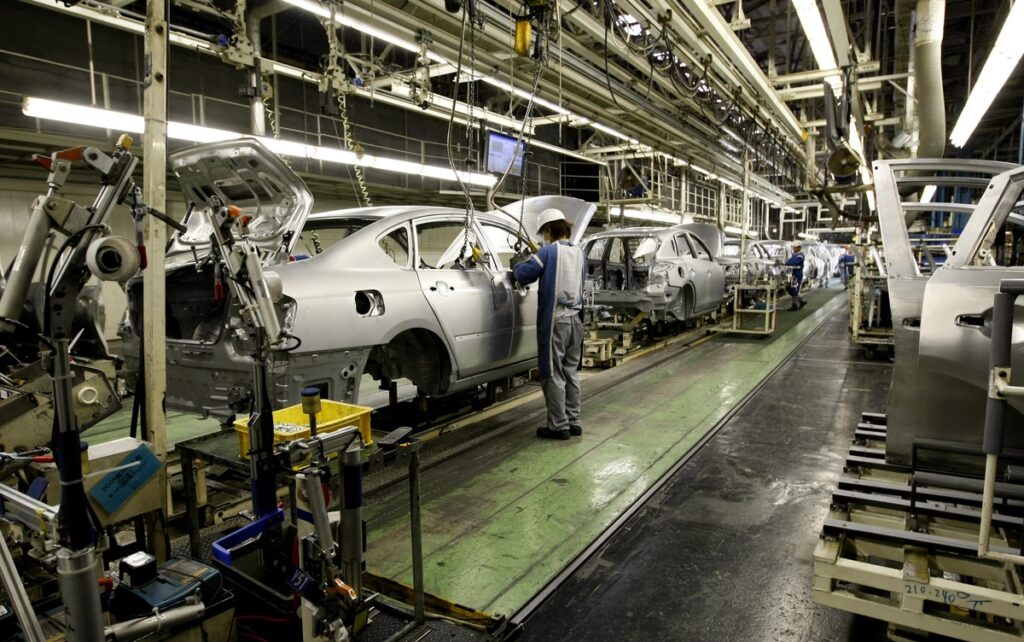Major Japanese automobile company Nissan is considering moving some of its production to the U.S., according to a new report, in what could be one of the first indicators for President Donald Trump that his sweeping tariffs may have the impact the White House intends.
Why It Matters
The White House placed a 25-percent tariff on auto imports, which came into effect on Thursday, as part of a wide-ranging raft of measures that ripped through the global financial markets.
The Trump administration has said the taxes on imported goods will spur on domestic manufacturing, encourage U.S. consumers to buy American-made products and boost the economy. The U.S. automobile industry “has been undermined by excessive imports threatening America’s domestic industrial base and supply chains,” the White House said last month.
“Hang tough, it won’t be easy, but the end result will be historic,” Trump said on Saturday, calling the tariffs an “economic revolution.” Experts say car prices are likely to rise for consumers.
What To Know
Japan-based business newspaper Nikkei reported on Saturday that Yokohama-headquartered car manufacturer Nissan was considering moving some of its domestic production of vehicles destined for the U.S. to America.
An unspecified chunk of the production for Nissan’s Rogue SUV at the company’s major factory in the southwestern Japanese city of Fukuoka would be switched to the U.S., according to the newspaper.
Newsweek has reached out to Nissan for comment via email.
Nissan sold roughly 920,000 vehicles in the U.S. in 2024, with around 16 percent exported from Japan, Nikkei reported.
The White House said that U.S. consumers bought 16 million cars, SUVs and light trucks in 2024, half of which were imported. Approximately 1 million U.S. workers are employed in America’s automobile and parts industries, according to the Trump administration. Fresh tariffs on imported vehicle parts are expected early next month.
Around 25 percent of the Rogue SUV is made in the U.S., while 40 percent of the vehicle is made in Japan, according to the National Highway Traffic Safety Administration.
Nissan had said on Thursday it would not accept new U.S.-based orders for two models of SUVs, built in Mexico.
Separately over the weekend, British luxury manufacturer Jaguar Land Rover said it was pausing shipments to the U.S. to “develop our mid- to longer-term plans.”
What People Are Saying
Wesley Hunt, a Texas Republican representative, said the tariffs “will bring automotive manufacturing back to America.”
The White House said last month that the U.S. automobile industry “has been undermined by excessive imports threatening America’s domestic industrial base and supply chains.”
What Happens Next
It remains to be seen how the auto tariffs will affect the global industry and supply chains in the coming months.
Read the full article here
